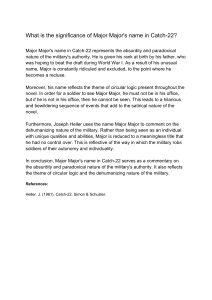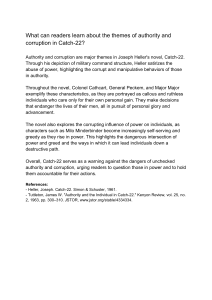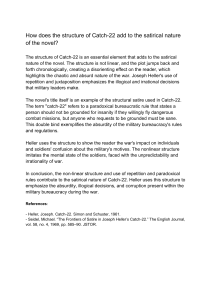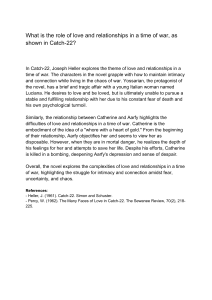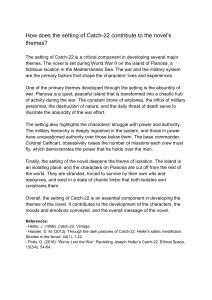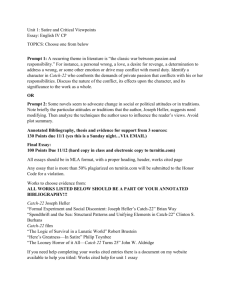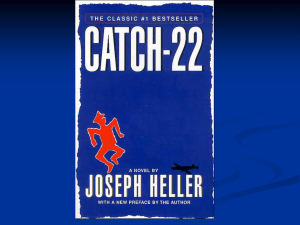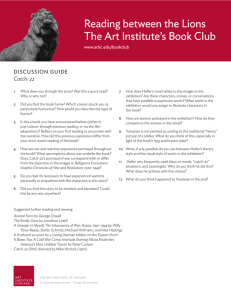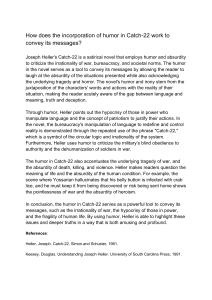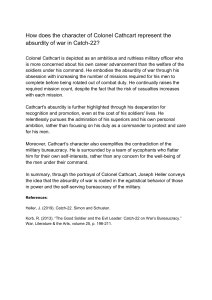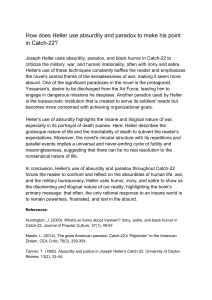How do the character s reactions to the war in Catch-22 emphasize the absurdity of conflict
advertisement
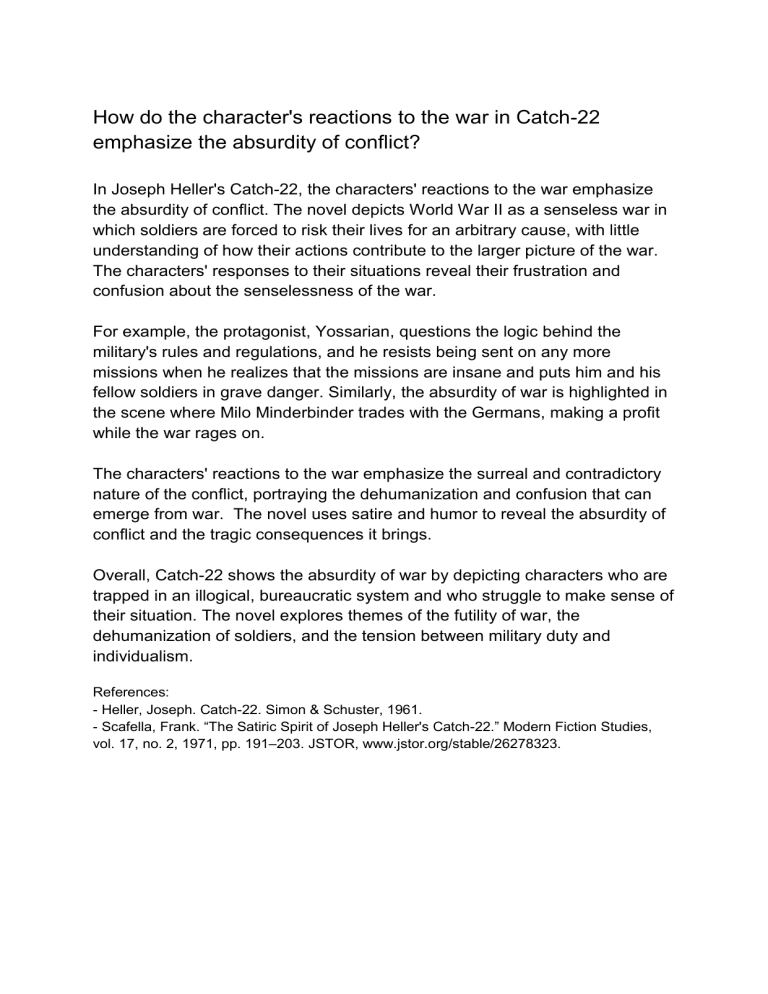
How do the character's reactions to the war in Catch-22 emphasize the absurdity of conflict? In Joseph Heller's Catch-22, the characters' reactions to the war emphasize the absurdity of conflict. The novel depicts World War II as a senseless war in which soldiers are forced to risk their lives for an arbitrary cause, with little understanding of how their actions contribute to the larger picture of the war. The characters' responses to their situations reveal their frustration and confusion about the senselessness of the war. For example, the protagonist, Yossarian, questions the logic behind the military's rules and regulations, and he resists being sent on any more missions when he realizes that the missions are insane and puts him and his fellow soldiers in grave danger. Similarly, the absurdity of war is highlighted in the scene where Milo Minderbinder trades with the Germans, making a profit while the war rages on. The characters' reactions to the war emphasize the surreal and contradictory nature of the conflict, portraying the dehumanization and confusion that can emerge from war. The novel uses satire and humor to reveal the absurdity of conflict and the tragic consequences it brings. Overall, Catch-22 shows the absurdity of war by depicting characters who are trapped in an illogical, bureaucratic system and who struggle to make sense of their situation. The novel explores themes of the futility of war, the dehumanization of soldiers, and the tension between military duty and individualism. References: - Heller, Joseph. Catch-22. Simon & Schuster, 1961. - Scafella, Frank. “The Satiric Spirit of Joseph Heller's Catch-22.” Modern Fiction Studies, vol. 17, no. 2, 1971, pp. 191–203. JSTOR, www.jstor.org/stable/26278323.
